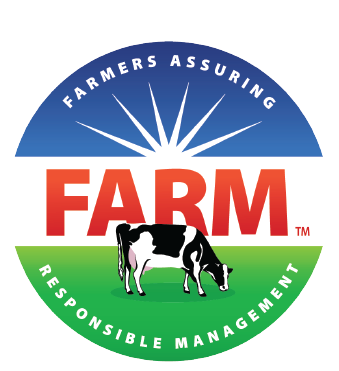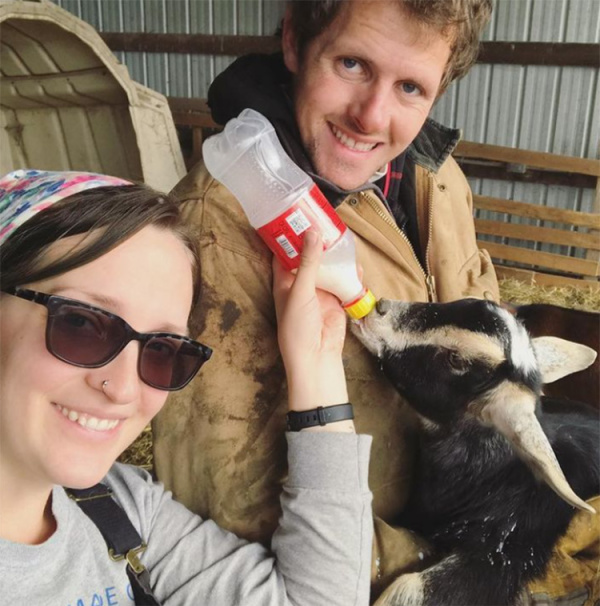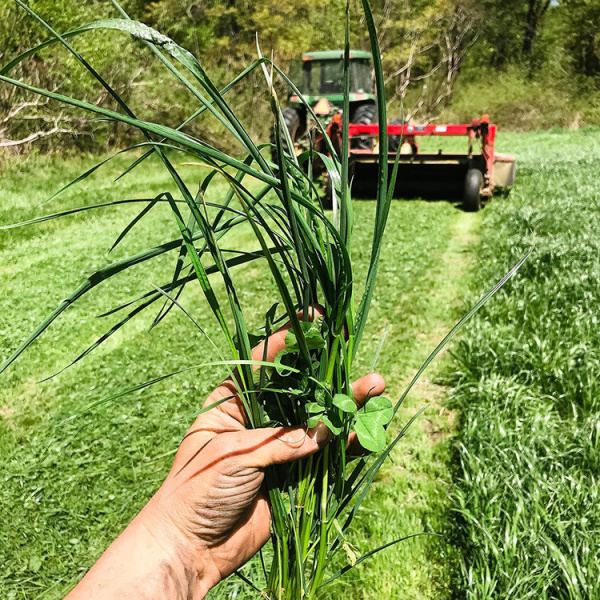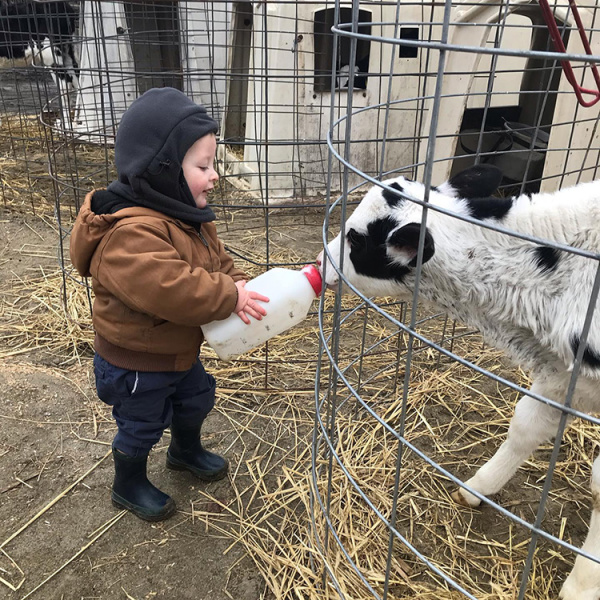- About
- Key Issues
Labor & Rural Policy
Sustainability
Animal Health
Nutrition & Food Safety
Labeling & Standards
- Programs & Resources
- Advocacy
- News
- Membership
- Events
- Stay Informed
- Contact
Luther Belden Inc.
Hatfield, Massachusetts


The Belden family farmed land near Hatfield, MA since 1661. That’s 360 years. Enough time to see everything.
Take electricity, for example. The Belden’s were in business nearly a century when Benjamin Franklin famously flew a kite in a thunderstorm and found electricity in lightning. Two centuries after they started, Thomas Edison invented the light bulb. Three-and-a-half centuries in, the Belden dairy farm has a methane digester that generates almost 2.5 million kilowatt hours of electricity annually – enough to power the lightbulbs, and everything else, in more than 200 homes for a year. Each is its own American Revolution – in energy, in how lives are lived, and now, in dairy’s leadership in sustainability.
Darryl and Lucinda Williams installed the digester in 2019. They farm with their son, Jackson and his wife, Jill, who together make up the 12th and 13th generation of family farmers. Their recipe for longevity, Darryl says, is always being prepared.

“Jackson joined the farm about six years ago. At that time, we decided that we needed to prepare for the next generation,” Darryl says. “We built a 180-cow voluntary milking system. Along with that, we put a digester in.”
The manure from their 174 head-herd of mostly Holsteins and 30 beef cattle goes into the digester, along with food waste from local restaurants. This collaborative approach powers the milking operation, helps lower greenhouse gas emissions, and generates enough electricity to sell the excess back into the grid.
“The town of Hatfield purchases our electricity,” Lucinda says. “We love that we are contributing directly back to our very own community.”
Helping companies in the surrounding area redirect the byproducts of their business away from landfills and into energy generation is just one of the ways the Williams’ dedicate themselves and their farm to the people around them.
“If you look at our farm, we have lots of neighbors,” Darryl says. “Part of why we put in the digester is to show them that we are concerned about the environment and demonstrate that we do everything we can to be good neighbors so people like having us in the neighborhood.”
The Williams’ care extends to the dairy community as well as the one defined by shared fence lines. As a founding family of the Agri-Mark Cooperative, the family and its relatives have served as regional delegates, past presidents of the Agri-Mark Young Cooperators, delegates to the NMPF Young Cooperators, and elected representatives of the co-op.
“We are really committed to a cooperative mindset,” Lucinda says. “We cannot do the work as individual farmers because we’re busy farming. We are pleased with what Agri-Mark is able to do for us, so we volunteer to help in whatever way we can.”
They also participate in Agri-Mark’s Sustainable Farms Committee meetings, a group of 15 cooperative members appointed to help disseminate information more broadly within the co-op and helps the Board of Directors stay tied to the farm.
“This committee serves as a forum to talk about issues of importance and significance relative to dairy sustainability,” says Jed Davis, Director of Sustainability for Cabot Creamery, which is owned by Agri-Mark. “It is intended to be a committee that represents a broad array of styles of farming, so that we can have conversations around sustainability at a more engaged level.”

The style of farming that works for the Williams’ has changed over the years to keep up with technological innovation and the latest in animal care – like switching to no-till, installing a robotic milking system, and the digester. 360 years witnesses a lot of revolutions.
“We can’t be expected to continue to work with 1940s, ‘50s, ‘60s technology, just like we’ve got our cell phones and no longer use the old rotary that we had, Lucinda says. “We can’t continue to thrive as an industry without moving into the new world.”

Lucinda says at Belden farm, they try to be as open with consumers as possible about the technology they use on their farms and how they care for their animals through the National Dairy Farmers Assuring Responsible Management (FARM) Program.
“The FARM Program helps us put the things we have done over the years down on paper,” Darryl says. “We keep better track of our animals and the occasional antibiotic use on the farm. It provides training for our part-time employees on the best ways to handle the animals.”
He says the FARM Program has guided them to the point where key members of their dairy team – the nutritionist, the vet, the hoof trimmer, even the guys who service the milking equipment – meet once a year to set goals, focus on improvement, and maintain clarity about their intentions and commitments.
This on-farm micro-community devoted to cow care on the Belden farm is a fitting parallel to the wider dairy community to which Darryl and Lucinda dedicate so much of their time.
“There’s a whole huge group out there that wants to end animal agriculture,” Lucinda says. “We try to come together to promote and support, and to be open and honest, because we believe that dairy is nutritious and delicious, and there is a place for that on the plate and in the glass.”
